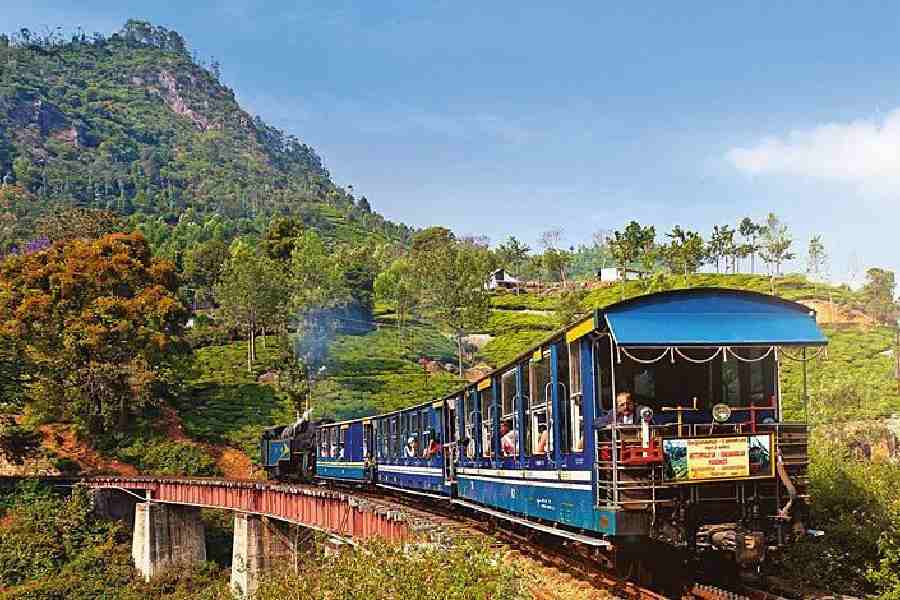Book: We Do Not Part
Author: Han Kang
Published by: Hamish Hamilton
Price: Rs 999
In Han Kang’s new book, Inseon, who is its shaping presence if not its protagonist, recalls her mother’s last days thus: “Then she stopped saying even yes or no in response, and with that her desires and requests seemed to vanish too. Still, when I placed a peeled mandarin in her hand, she would split it and give me back the bigger half out of lifelong habit, and smile. At which my heart would fall open. I remember wondering if I’d feel that way too towards my child, if I were to have a child.”
Mandarins are important in this book. So are (in no particular order) trees, snowflakes, oceans, birds, human skeletons, films, photographs, novel-writing, newspaper archives, government reports, witness testimonials, stomach cramps, blood, vomit, migraines, nightmares, ghosts, bean juk and ricejuk, life, death, friendship, love, memory, and bullets. What holds all this richness of objects and abstractions exquisitely balanced within the story is not an act of the intellect but the many sensations of the single emotion we call ‘wonder’. Not only do the major narrators (the first-person framing voice of Kyungha, a forty-something writer, and her old friend, the acclaimed documentary filmmaker-turned-woodworker, Inseon) look at the world in amazement; they wonder aloud and speculate, in dialogue and monologue, about its meanings, especially when they can’t seem to find any.
It is this very special quality of wondering and, by extension, the imagination that holds Kyungha captive as she sinks into suicidal depression at the beginning of the story. After finishing her last book on a particularly bloody chapter of South Korean history, she is tormented by a recurring nightmare for four long years while she loses family, health, and the will to live. As she half-heartedly struggles against self-annihilatory urges, the living world calls upon her in the shape of Inseon, who has had a terrible accident with an electric saw and is in hospital in Seoul. She is desperately worried about her bird, Ama, who is in Jeju island, and will die if not fed soon. So, resolutely ignoring the agonies of her migraine-riddled, stomach-cramped body and dream-possessed spirit, Kyungha sets out on an impossible journey in the middle of a snowstorm to save both bird and friend.
Han Kang has spoken at length about her earlier novel, Human Acts, and the present one, which is its companion, in her Nobel lecture. The wondering reader is directed to it for authorial elucidation of the book’s thematic concerns. Just as the witness accounts of the brutal massacres on Jeju rely on Kyungha and Inseon’s anguished personal response for true comprehension, authorial testimony too needs to entangle with the reader’s heart for the work of art to authoritatively speak itself. Rarely does a book that opens on an autobiographical premise succeed in creating a protagonist so capable of inviting the other in. Through Kyungha’s conducive voice, the book relentlessly demands access to the innermost depths of the readers’ experience and calls to the highest reaches of their imagination. We must feel the “sensation similar to soap suds or foam on skin” when the twenty-gram Ama pushes off into flight from Kyungha’s shoulder or the perfectly delicate but “startlingly cold” touch of the snowflake crystals that melt onto living skin if we wish to know the magnitude of the brutality of the Jeju massacres. This is a devastatingly lovely and magnificently horrible chronicle and can only be endured in small doses. We must pause in between, allowing ourselves the time to thrill to its abstractions and contemplate its passions.
Although the award-winning translators, e. yaewon and Paige Aniyah Morris, do a tremendous job of bringing Han Kang’s delicate touch and spare style to the page, it is clear that the crafting of this deeply philosophical novel is not limited to its compelling imagery or nesting narrative structure. Kyungha, ostensibly the actor of the plot, is only a second-hand witness, while Inseon is the reason for her, and the novel’s, existence. The many voices telling their stories are pulled into Kyungha’s reportage when she recounts her conversations with Inseon, describes the cinematography of her friend’s award-winning documentaries, and reproduces the text of the witness interviews shown in them. This clever ekphrastic device, in which images are described in words, also serves to subtly draw attention to the novel’s preoccupation with its own status as literary art.
Despite the urgency and the relevance of the problems it explores, this book stands outside the reach of intellectual debate. It is a work of complex and utter fragility, just like the world we inhabit and constantly mistreat. In the face of this heartbreaking beauty, even without access to the linguistic resonance of the original, one can only suffer the “terrible agony” of love and be thankful that this book indeed exists.










